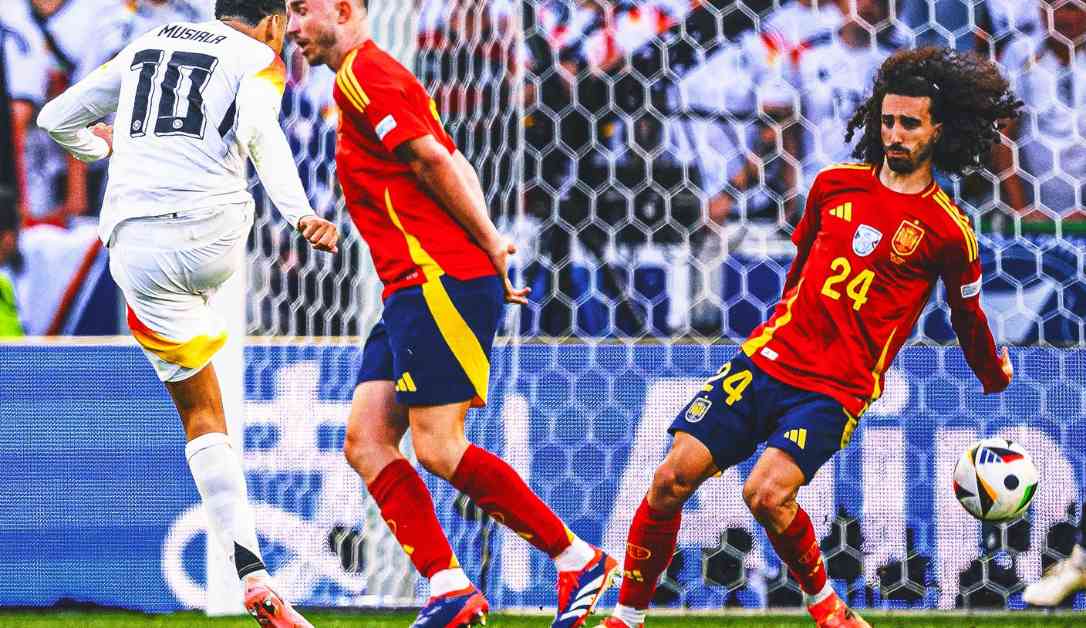Germany’s head coach, Julian Nagelsmann, is calling for a change in the handball rule in soccer after his team’s loss in Euro 2024. The controversy arose during Germany’s quarterfinal match against Spain when a ball struck the arm of Spanish defender Marc Cucurella. Referee Anthony Taylor determined it was not a handball, and Germany was later eliminated from the tournament.
Nagelsmann acknowledged that the referee’s decision was based on the current rules, but he emphasized the need for a more practical and logical approach to assessing handball incidents. He highlighted the ambiguity in determining whether a player’s hand position is “natural” or “unnatural” and suggested that the rule should consider the direction of the ball and the player’s intent.
The debate over the handball rule is not unique to Germany, as Denmark’s head coach, Kasper Hjulmand, also expressed frustration with the existing regulations after his team’s elimination from the tournament. The need for a clearer and more consistent application of the handball rule has become a topic of discussion among coaches, players, and fans alike.
As soccer continues to evolve, it is essential for governing bodies to review and update the rules to ensure fairness and transparency in officiating. The use of technology, such as artificial intelligence, could potentially aid in making more accurate and informed decisions regarding handball incidents on the field.
Ultimately, the goal is to create a rule that is easier to understand, implement, and uphold. By addressing the concerns raised by coaches like Nagelsmann and Hjulmand, soccer authorities can work towards improving the overall integrity and credibility of the sport. The ongoing dialogue surrounding the handball rule serves as a reminder of the importance of continuous evaluation and adaptation in modern soccer.








